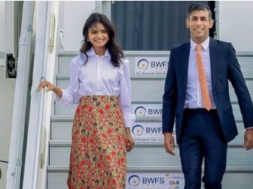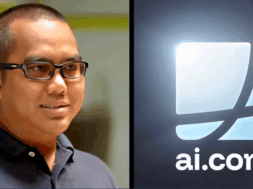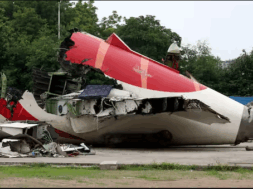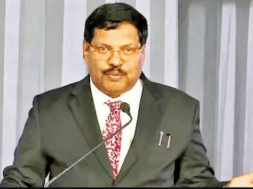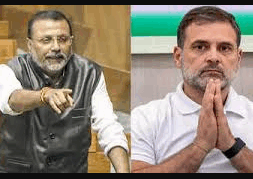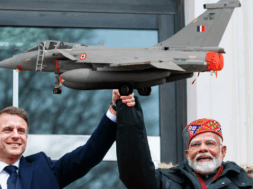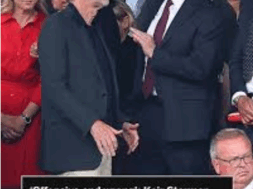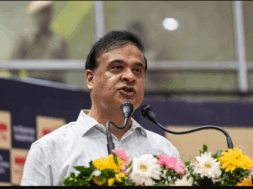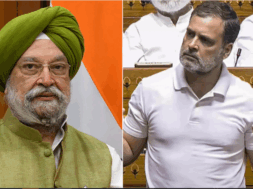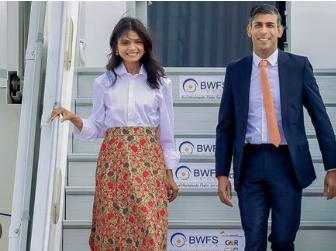
Rishi Sunak says His Visit to India “Obviously Special”
Manas Dasgupta
NEW DELHI, Sept 8: Contrary to the tradition in the Indian families, this “son-in-law” of India, the British Prime Minister Rishi Sunak, may not get any special treat different from other world leaders attending the G20 Summit in Delhi, but he has held his trip to India “obviously special.”
Rishi Sunak, who arrived in Delhi on Friday evening to take part in the G20 Summit, said his visit to New Delhi for the G20 Leaders’ Summit was “obviously special” as he joked about being referred to as the “son-in-law of India” as the first British Prime Minister of Indian heritage and married to an Indian – Akshata Murthy.
Speaking to reporters in a huddle on his flight to New Delhi, the 43-year-old British Indian leader said he was excited to be back in India, “a country that is very near and dear to me”. He is joined on the visit by his wife, the daughter of Infosys co-founder Narayana Murthy, and is scheduled for bilateral talks with Prime Minister Narendra Modi on the sidelines of the summit.
“I’m heading to the G20 Summit with a clear focus. Stabilising the global economy. Building international relationships. Supporting the most vulnerable,” tweeted Rishi Sunak as he embarked on the three-day tour. “It’s obviously special. I saw somewhere that I was referred to as India’s son-in-law, which I hope was meant affectionately,” he told reporters travelling with him.
Shortly after landing in Delhi, Sunak said the UK was “working closely with India to tackle Khalistani extremism.” Mr Sunak stressed that the UK would not accept any form of violence, and that the two countries are collaborating to end this threat. “This (the Khalistani issue) is a really important question… let me just say, unequivocally, no form of extremism or violence like that is acceptable in the UK. And that is why we are working very closely with the Indian government to tackle ‘PKE’ (pro-Khalistan extremism),” the UK leader said.
“Our Security Minister was recently in India… we have groups working together to share intelligence so we can root out this kind of violent extremism. It’s not right and I won’t tolerate it in the UK.” The UK minister, Tom Tugendhat, was in Delhi last month and vowed to ensure the security of Indian diplomatic staff in London. He said the British government was aware of India’s concerns and stressed that “any attempt to radicalise people in the UK would be dealt with by the authorities.”
“Let me be very clear about this. This is not an Indian problem in the UK. Whenever there is radicalisation in the UK of UK citizens, this is a British problem. And so any attempt to radicalise any UK citizen in any direction will be dealt with by the British government,” he had said.
In March, pro-Khalistan elements shouting separatist slogans attacked the Indian High Commission in London and pulled down the national flag from a pole in front of the building. This was a day after police in Punjab launched an intensive manhunt for radical preacher Amritpal Singh. The attack was decried by the UK’s Business and Trade Minister as “disgrace.”
On the topic of India-UK ties, he spoke about areas of co-operation, including technology. He said, he was “excited about increasing collaboration between our incredible researchers, scientific community, universities. The UK and India are two of the leading technology superpowers… if we work together we can create jobs, create new businesses, and help solve some of the world’s pressing problems.”
Ahead of the G20 Summit, Mr Sunak spoke on a range of issues, including the India-UK Free Trade Agreement and the Indian roots of his family, of which much has been made since he was voted to power in October last year. He also declared himself “a proud Hindu.”
The Russia-Ukraine conflict has been flagged as a key topic on the agenda for the UK during the summit discussions, with Downing Street saying India’s role and influence is “vital.”
“Once again, Vladimir Putin is failing to show his face at the G20. He is the architect of his own diplomatic exile, isolating himself in his presidential palace and blocking out criticism and reality. The rest of the G20, meanwhile, are demonstrating that we will turn up and work together to pick up the pieces of Putin’s destruction,” Rishi Sunak told reporters.
His Downing Street spokesperson said the UK would use “every opportunity” to show its support for Ukraine and further foster global support as well. “India has a vital role to play as the world’s largest democracy in calling out Russia’s assault on human rights and indeed democracy itself. We will use meetings with PM Modi or elsewhere to encourage them to use that influence to bring an end to Putin’s brutal invasion,” Prime Minister Sunak’s spokesperson said.
Last month it was reported that India and the UK were in the “final stages” of talks. On Friday Mr Sunak said “Prime Minister (Narendra) Modi and I are keen to see the comprehensive and ambitious trade deal concluded…”, but cautioned “trade deals always take time… they need to work for both countries.”
The India-UK free trade agreement (FTA) negotiations are likely to feature highly during the Narendra Modi-Rishi Sunak bilateral discussions, having just completed 12 rounds of negotiations but with no set timeframe for its conclusion.
Separately, Downing Street has indicated that there will be no changes to the UK immigration policy as part of the deal, though short-term business visas are up for discussion as part of the trade talks.
Official UK government statistics peg the India-UK bilateral trade relationship as worth around GBP 36 billion in 2022, expected to be significantly enhanced with what both sides have branded as a deep and forward-looking FTA.
Mr Sunak praised India’s presidency of the G20, declaring it to be “the right country at the right time” to be hosting the summit. “The G20 has been a huge success for India… (I) feel we will have a very good couple of days of deliberations and decisions…” he said.
On India’s G20 theme – “Vasudhaiva Kutumbakam“, “One Earth, One Family,” Mr Sunak described himself as “an example of the incredible living bridge” and the summit’s motto.
PM Modi and Prime Minister Sunak last met on the sidelines of the G7 Summit in Hiroshima, Japan, in May. A month later, during UK-India Week in London, Rishi Sunak had said he “can’t wait” to meet his Indian counterpart again.
“Prime Minister Modiji and I agree there’s huge potential here. We’re making great progress together on the 2030 Roadmap and we want to strike a truly ambitious trade deal that benefits both our nations, bringing tremendous opportunities to businesses and consumers, both in India and here at home,” he had said at the time.
